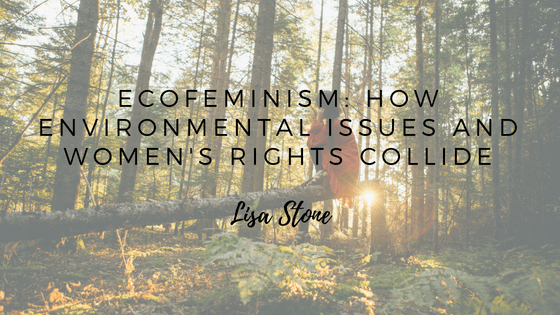There’s no doubt that women’s rights and environmental rights have been steadily pushed to the forefront of political conversation, and for good reason! More and more recently, the conversation is being pushed to intersectional feminism, in particular, the intersection of where concerns for environmental advocacy and women’s right collide, otherwise known as ecofeminism. How exactly do recycling and reproductive rights have anything to do with one another, you may ask? Keep reading to find out, plus ways that you can lend a hand for the better!
Fast Fashion and Worker’s Rights
Fast fashion is inexpensive up front, but the reality of its exploitation is costly for both our environment and ourselves. The fast fashion business isn’t conscious of cutting out unnecessary wastes, nor is it conscious, or caring, of worker’s conditions. Women around the world, many of whom are underage, are disempowered by harsh work environments, long hours, and atrociously low pay that reinforces a cycle of capitalism where top clothing brand CEOs become wealthier and wealthier, while the workers struggle to remain afloat in poverty. How can you help? Shop ethically! Learn about the practices of brands you frequent and consider alternatives if these brands employ the use of sweatshops.
Menstruation, Education, and the Environment
Even in the 21st century, harmful stigma regarding the entirely natural and fundamental process of menstruation continue to exist. These stigmas prevent women and girls from accessibility to proper hygiene products, may force them to skip school or drop out altogether upon reaching puberty, and can incite humiliating treatment from their families and communities. Menstruating bodies need access to hygiene products and proper toilet facilities with clean water to ensure that they are able to manage their period with dignity, privacy, and efficiency. How can you help? Sign petitions to encourage lawmakers to intervene. You can also help address stigma and lack of accessibility locally by donating hygiene products to a nearby homeless shelter.
Cleaner Water, Clearer Future
Indigenous women are frequently the recipients of how patriarchy and lack of environmental consciousness intersect. Take, for example, Standing Rock and the issue of the Dakota Access Pipeline. Many indigenous women were leaders of protests against the construction of the pipeline, which would affect accessibility to clean water and subsequently post as a threat to reproductive prosperity. How can you help? Don’t support businesses that financially supported the construction of the pipeline, and push your representatives to rally for more eco-friendly fuel alternatives to lessen the need for oil.
